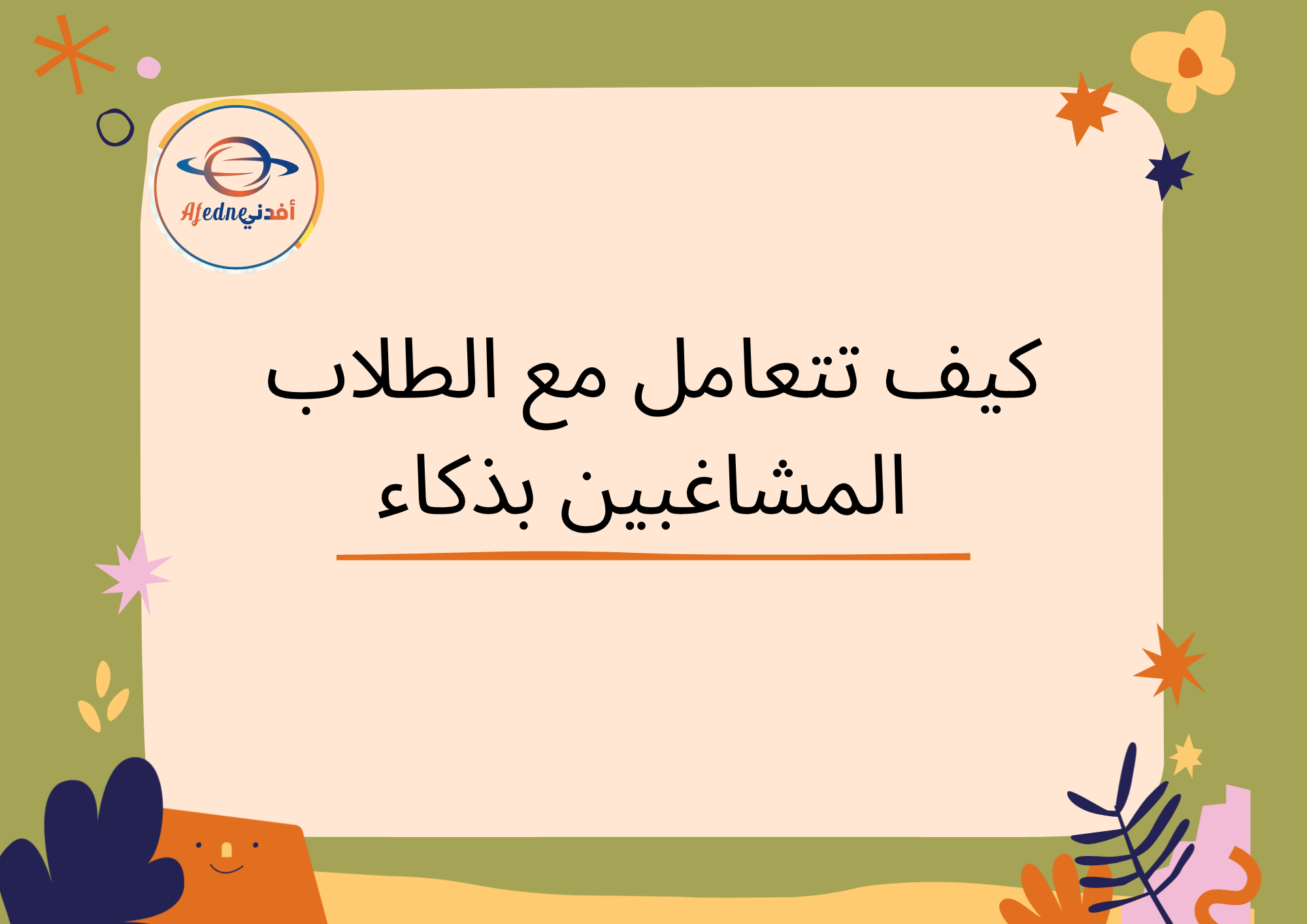How to Deal with Disruptive Students Intelligently?
How to Deal with Disruptive Students Intelligently?
Dealing with disruptive students presents a significant challenge for teachers, but it's also an opportunity to develop your classroom management skills and build a positive relationship with your students. This task requires a combination of psychological understanding, patience, and tact. In this article, we'll discuss the smartest and most effective ways to deal with disruptive students in a way that maintains order and fosters a positive learning environment.
1. Understand the Reasons for Disruptive Behavior
Disruptive behavior is often the result of external factors, such as:
Problems at home.
Psychological or social pressures.
Difficulty understanding lessons or feeling bored.
A desire to attract attention.
How to Deal With It?
Try to understand the reason instead of focusing solely on punishment. Talk to the student individually to understand their problem.
Be empathetic; the student may need someone to listen to them rather than reprimand them.
2. Be Calm and Firm at the Same Time
Don't let the disruptive student provoke you or make you lose your temper.
How to Deal With It?
Use a calm but firm tone of voice when speaking to the student.
Don't raise your voice or engage in public arguments in front of the other students.
Show that you are in control of the situation without resorting to anger.
3. Establish clear classroom rules of conduct.
Students need to understand the rules and what is expected of them.
How to do this?
Begin the school year by establishing clear classroom rules of conduct.
Keep the rules simple, specific, and understandable. For example: "Raise your hand before speaking," "Listen to others when they are speaking."
4. Use positive reinforcement.
Disruptive students are often seeking attention, so give them positive attention when they behave well.
How to do this?
Praise the student when they exhibit positive behavior, even if it seems small.
Use a reward system such as extra points or public praise.
Focus on reinforcing good behavior rather than punishing bad behavior.
5. Use interactive teaching methods.
Disruptive behavior may be a result of boredom or disinterest in the subject matter.
How to do this?
Make the lesson more interactive through group activities, educational games, or discussions.
Distribute activities so that every student feels involved.
Use a variety of teaching methods that suit all learning styles (such as visual, auditory, or kinesthetic).
7. Seek parental help when needed.
Some behaviors require parental intervention.
How to handle this?
Invite parents to a meeting to discuss the problem constructively.
Provide clear information about the student's behavior in class, with specific examples.
Suggest joint plans to modify the student's behavior at home and at school.


